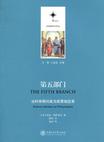第五部门
2011-1
上海交通大学出版社
希拉•贾萨诺夫
334
陈光,温珂
无
1945年8月6日投放在日本广岛的原子弹不仅夺去了很多生命,毁坏了大量建筑,同时也粉碎了科学家能在他们创造的知识使用中置身事外的神话。几位杰出的物理学家就原子弹投放地点向战争部长亨利·刘易斯·史汀生提供了建议,他们的名字被不光彩地载入了史册。这些灾难性事件之后,提供科学咨询随即变成一个更为平凡和普及的过程。尽管这一过程很少被公之于众,也几乎没有受到相应的监督,但它对我们日常生活的影响却与日俱增。譬如,我们是否可以食用超市里的苹果、使用发胶、在市中心驾车、焚毁垃圾、生产核能或将转基因生物投放到生态系统中等等。对于这类问题,我们希望政治决策者能征求专家们的意见,但几乎没有人进一步了解具体是哪些专家在提供咨询意见,他们对公共政策的影响又有多大。 本书旨在揭开现代科学咨询过程的面纱,使其成为公共政策分析的焦点——这是它理所当然的位置。我从1985年起开始对科学顾问委员会的作用进行调查研究,当时正值政府机构的科学公信力遭到政治左翼与右翼的质疑。他们普遍认为监管者在制定有关健康、安全和环境的政策时,没有付出足够的努力去获取高质量的科学建议,还指责联邦政府故意将政治与科学混为一谈。他们一致认为,独立的科学共同体应该发挥更为积极的作用,以使监管机构的官员能遵循更高标准的科学问责制。
本书为“决策科学化译丛”之一,批判了指导监管机构运用科学知识的两种普遍公认的范式——“民主论”模式和“技术统治论”模式,并通过研究美国环保局、美国食品药品监督局的相关案例,如致癌原风险评估指南的制定过程、甲醛的监管问题等,阐释并评价了美国社会作出关于科学和技术选择的决策过程,讨论了咨询委员会以外的其他决策咨询机制,并就如何提高科学咨询的质量提出了建设性设想。
Sheila Jasanoff is an American academic and significant contributor to the field of Science and Technology Studies. She is Pforzheimer Professor of Science and Technology Studies at the John F. Kennedy School of Government at Harvard University, where she directs the Program on Science, Technology, & Society. [1] Her research focuses on science and the state in contemporary democratic societies. Her work is relevant to science & technology studies, comparative politics, law and society, political and legal anthropology, and policy analysis. Jasanoff’s research has considerable empirical breadth, spanning the United States, the United Kingdom, Germany, the European Union, and India, as well as emerging global regimes in areas such as climate and biotechnology.
One line of Jasanoff’s work demonstrates how the political culture of different democratic societies influences how they assess evidence and expertise in policymaking. Her first book (with Brickman and Ilgen), Controlling Chemicals (1985), examines the regulation of toxic substances in the United States, Germany, and the United Kingdom.[2] The book showed how the routines of decision making in these countries reflected different conceptions of what counts as evidence and of how expertise should operate in a policy context. In Designs on Nature: Science and Democracy in Europe and the United States (2005), she has shown how different societies employ different modes of public reasoning when making decisions involving science and technology. [3] These differences, which in part reflect distinct "civic epistemologies," are deeply embedded in institutions and shape how policy issues are framed and processed by the bureaucratic machinery of modern states.
Jasanoff has also contributed to scholarship on the interaction of science and law. Science at the Bar (1995), for example, reached beyond the prevailing diagnoses of structural incompatibilities between science and law to explore how these socially-embedded institutions interact and, to a certain extent, mutually constitute each other. [4] The concept of regulatory science, conducted for the purposes of meeting legally-mandated standards, and the "boundary" drawing activities of science advisory committees are analyzed in The Fifth Branch (1990).[5] More recently, she has explored the "rise of the statistical victim" in toxic torts, as the law with its individualistic orientation has increasingly encountered, and sought ways to accommodate, the statistical vision of such fields as epidemiology.[6] In her work on science and law, as well as her research on science in the state, she takes an approach that links ideas from constitutional law, political theory, and science studies to consider the "constitutional" role of science in modern democratic states.[7]
Jasanoff has considered the politics of science not only in a comparative but also in a global context. Examples include her work on the transnational aspects of the Bhopal disaster (Learning from Disaster 1994); her research on the formation and politics of global scientific advisory bodies such as the Intergovernmental Panel on Climate Change; and her research on national and global environmental movements (e.g., Earthy Politics, 2004).
Jasanoff also has contributed to building Science and Technology Studies as a field. Prior to moving to Harvard, she was the founding chair of the Department of Science & Technology Studies at Cornell University. She is also the founder of the Science & Democracy Network, a group of scholars interested in the study of science and the state in democratic societies that has met annually since 2002. Her research has been recognized with many awards, including the Bernal Prize from the Society for Social Studies of Science.
She is married to Jay Jasanoff, and has two children, Maya Jasanoff, who is an associate professor in the Department of History at Harvard, Alan Jasanoff, is a neuroscientist at MIT.
第1章 政治理性化 社会管制的兴起 科学与政策制定 专业能力与信任 知识的偶然性 改革的争论 一个替代方案第2章 有瑕疵的决策 亚硝酸盐事件 2、4、5-涕事件 拉夫运河事件 职业性癌症评估 技术统治论者的反应 批判性反驳第3章 有益于人民的科学 公共科学的基本原理 “新兴”专家机构 科学咨询与政务公开 科学政策的司法审查 科学政策范式的弱化第4章 同行评议与管制科学 同行评议的传统 实践中的同行评议制度 失误的启示 管制科学的内容与背景 监管领域同行评议的含义第5章 美国环保局及其科学顾问委员会 早期的政治挑战 一项新的合作 划界行为 科学顾问委员会对政策的影响 结论第6章 清洁空气的科学与政策 清洁空气科学顾问委员会和国家空气质量标准程序 科学与标准 重新定义清洁空气科学顾问委员会的角色 一氧化碳的争论 清洁空气科学顾问委员会的作用:链接科学与政策第7章 当顾问成为敌人 科学顾问小组 执行不可能的任务 二溴乙烷 三氯杀螨醇事件 丁酰肼 权威的破碎第8章 美国食品药品监督局的咨询网络 对药物的科学评估 专家意见和食物安全 咨询意见和决策第9章 应对新知识 探求有原则的风险评估 甲醛:一个不确定的致癌原 结论第10章 再论技术统治论 面向科学的公私伙伴关系 没有政治的风险评估 公众质询委员会 广泛的应用第11章 好科学的政治功能 从咨询到政策 可接受的风险 科学咨询的合法化:协商及划界活动 定义“好科学” 规范意义结论译后记
在1983~1984年召开的一系列关于杀虫剂注册的听证会上,众议院政府运作委员会的一个分委员会听取了有关美国环保局如何处理三氯杀螨醇的证词,自此三氯杀螨醇开始受到政治关注。②在这个系列听证中,环保利益集团明显要比农业利益集团更具影响力。该分委员会的成员表示了极大的忧虑,因为他们发现,从美国环保局禁用DDT到发现三氯杀螨醇的制备剂也被相关化合物污染之间发生了不合理的延迟。1957年开始,三氯杀螨醇制造商就向政府提交秘密报告,证明DDT是一种杂质。然而,这一事实直到美国环保局在1979年发起对三氯杀螨醇的注册标准评审时,才被正式公告。③根据美国环保局自己的规定,DDT作为一种禁用物质,一旦出现,仅此就足够启动可驳回注册假定评审;但事实上,直到美国环保局完成了三氯杀螨醇的注册标准程序,它仍在观望。国会的调查人员对美国环保局的“只有先完成注册标准,才能作出更有效的行政决策”的说法不屑一顾。在要求对三氯杀螨醇采取实际行动的压力之下,1984年末美国环保局发出通知取消了这种杀虫剂的注册资格。
“决策科学化译丛”是中国第一套系统研究科学咨询的理论与实践的译丛。本译丛收入了当前国际科学咨询领域的10部名著,从政治学、社会学、历史学和哲学等不同的学科视角,对科学家的社会责任、科学咨询的演进过程及制度设计等方面进行了深入探讨,有助于科研院所、科学团体以及专门决策咨询机构有效参与政府决策咨询过程,推进我国决策科学化和科学咨询事业的发展。

无
译作水平很高,言辞工整。作为决策管理学科为数不多的参考书,值得推荐。
读后很有启发,值得一读